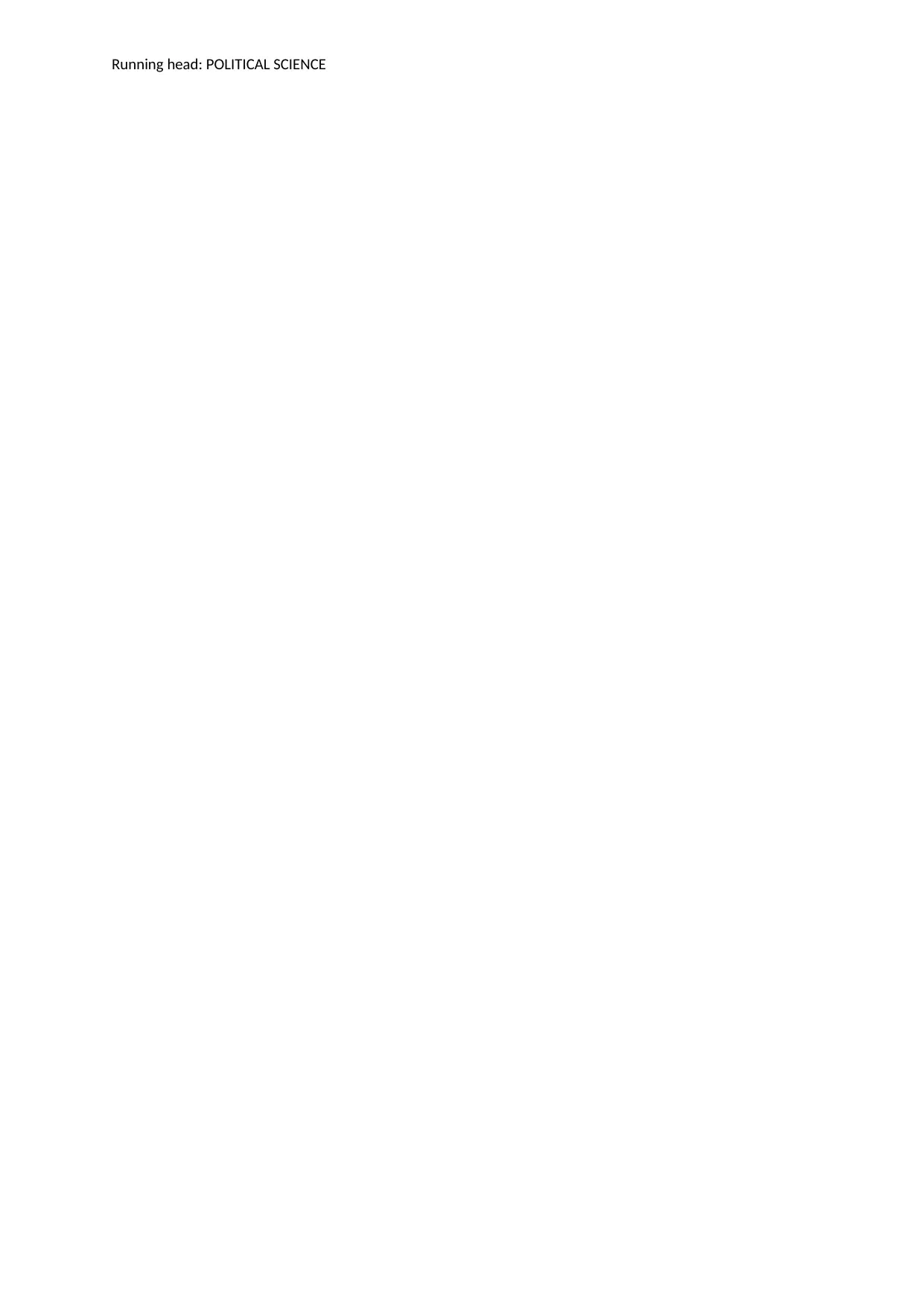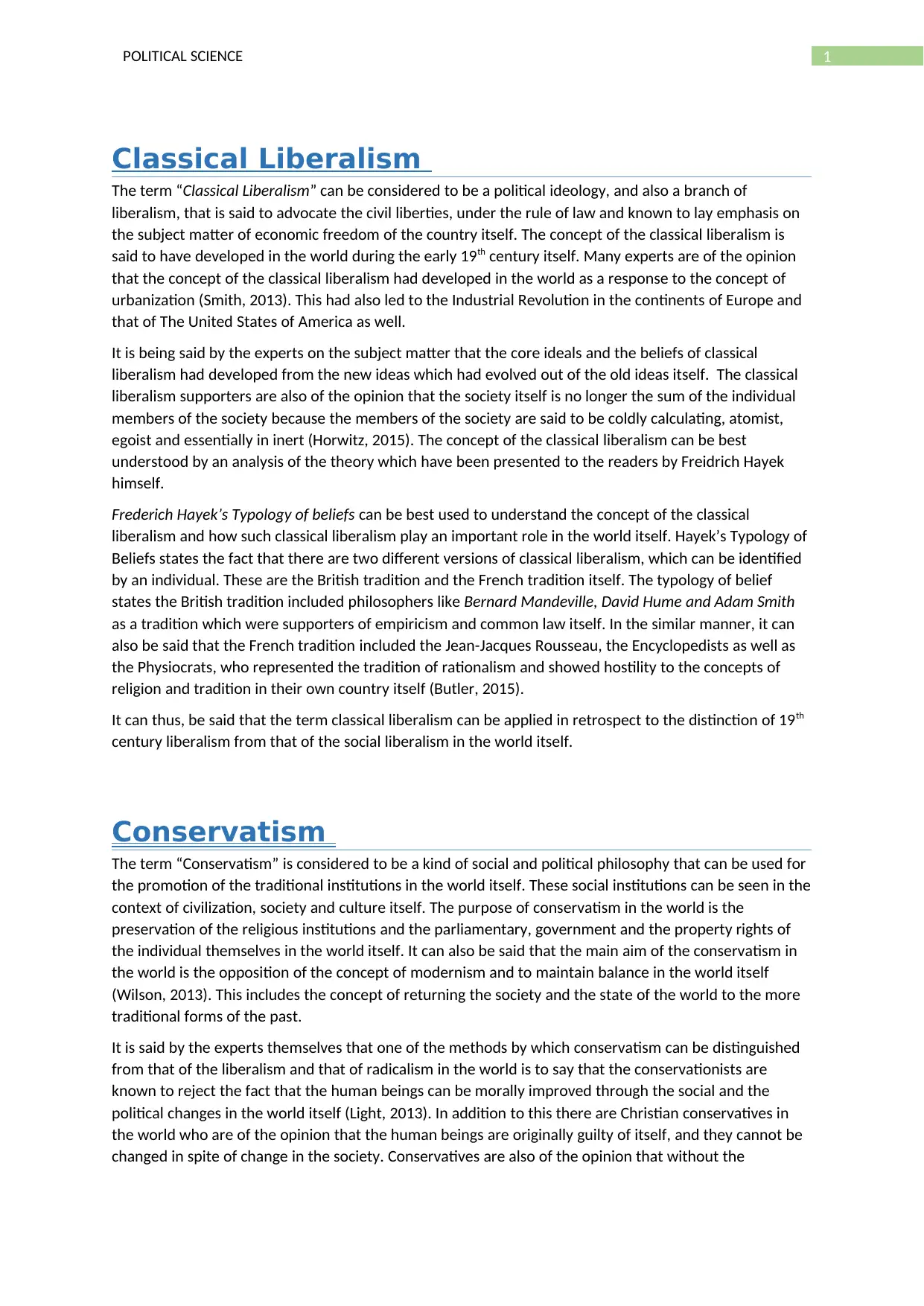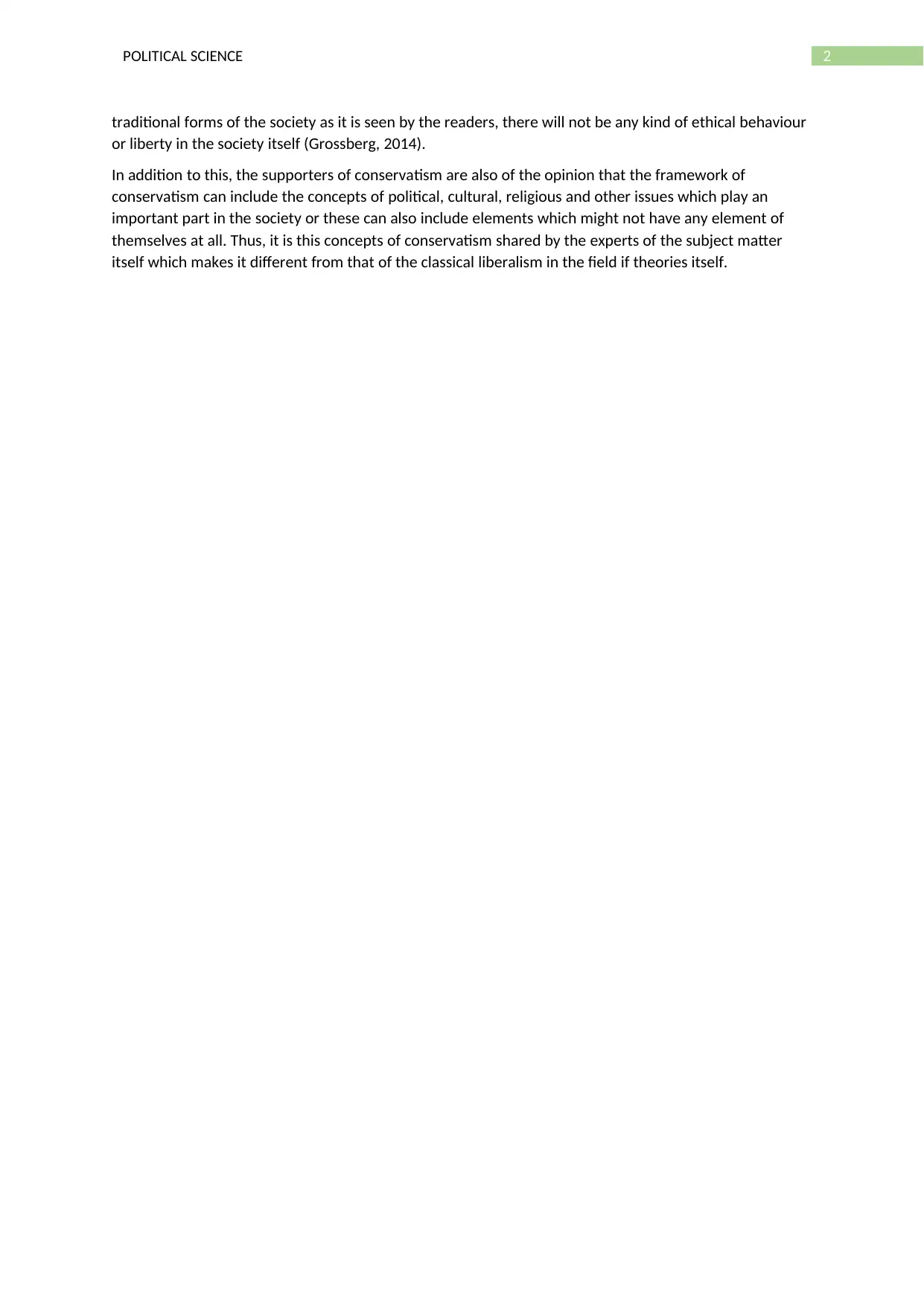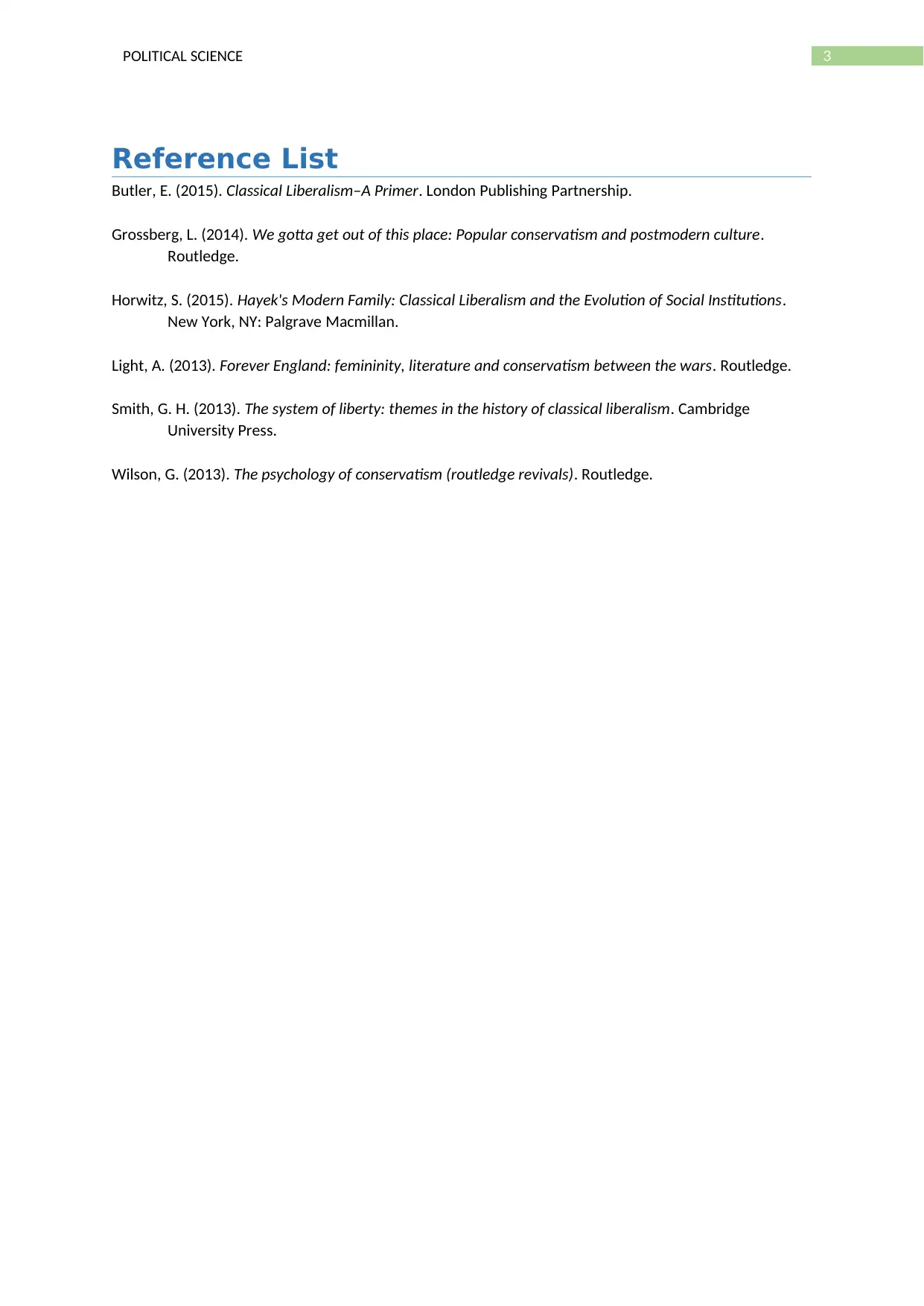POLITICAL SCIENCE 2: Classical Liberalism and Conservatism Essay
VerifiedAdded on 2022/11/13
|4
|968
|224
Essay
AI Summary
This essay provides a comparative analysis of Classical Liberalism and Conservatism, two significant political ideologies. It begins by defining Classical Liberalism as a branch of liberalism emphasizing civil liberties, the rule of law, and economic freedom, tracing its development in response to urbanization and the Industrial Revolution. The essay highlights the core beliefs of classical liberalism and discusses Friedrich Hayek's typology of beliefs, differentiating between British and French traditions. Conservatism is then defined as a philosophy promoting traditional institutions, religious institutions, and property rights, while opposing modernism. The essay contrasts conservatism's rejection of the idea that humans can be morally improved through social or political changes with the tenets of classical liberalism. The essay references key thinkers and traditions associated with each ideology, providing a comprehensive overview of their contrasting principles and societal impacts.
1 out of 4









![[object Object]](/_next/static/media/star-bottom.7253800d.svg)